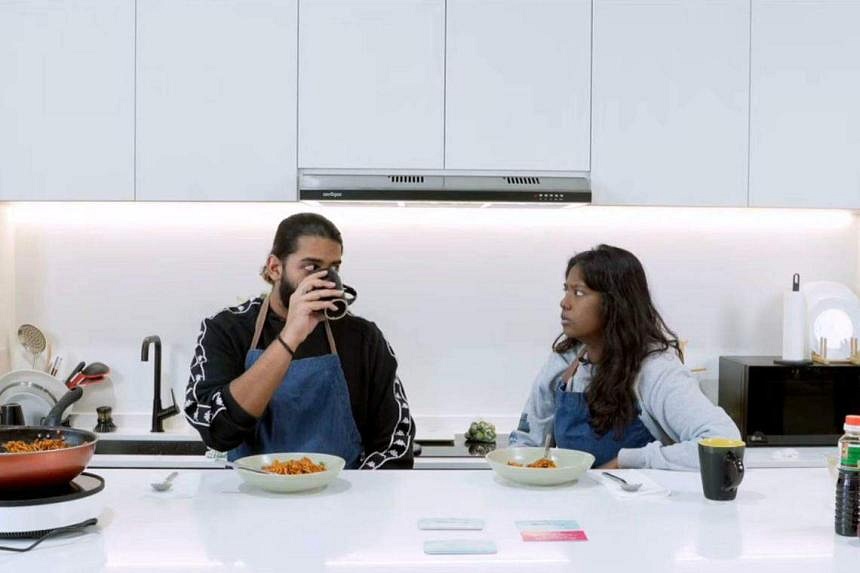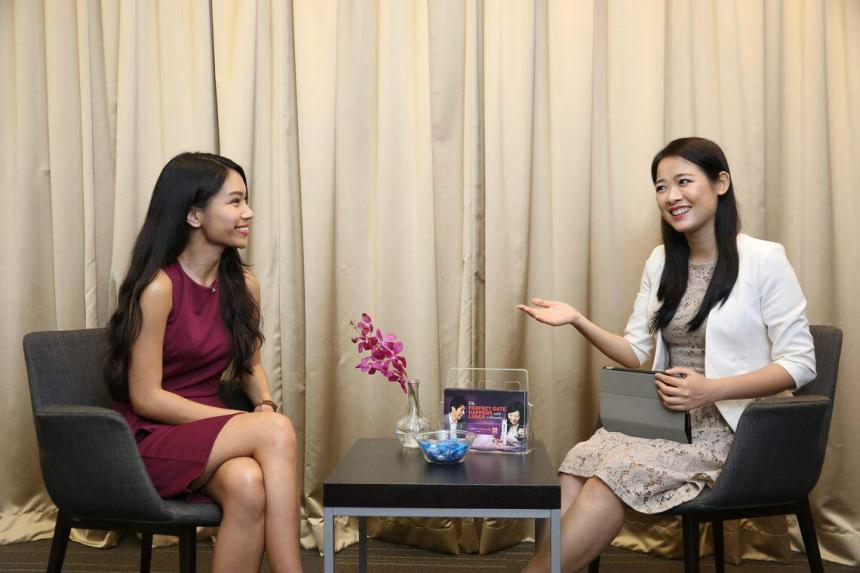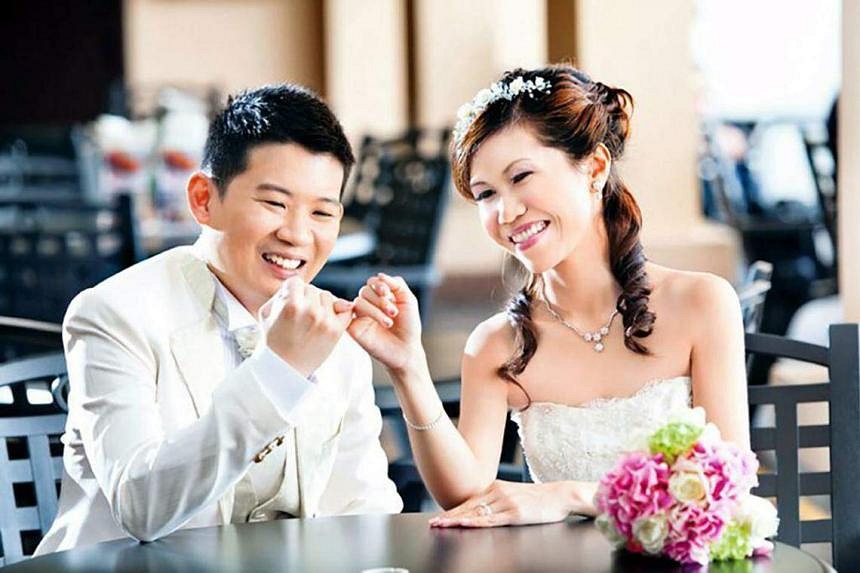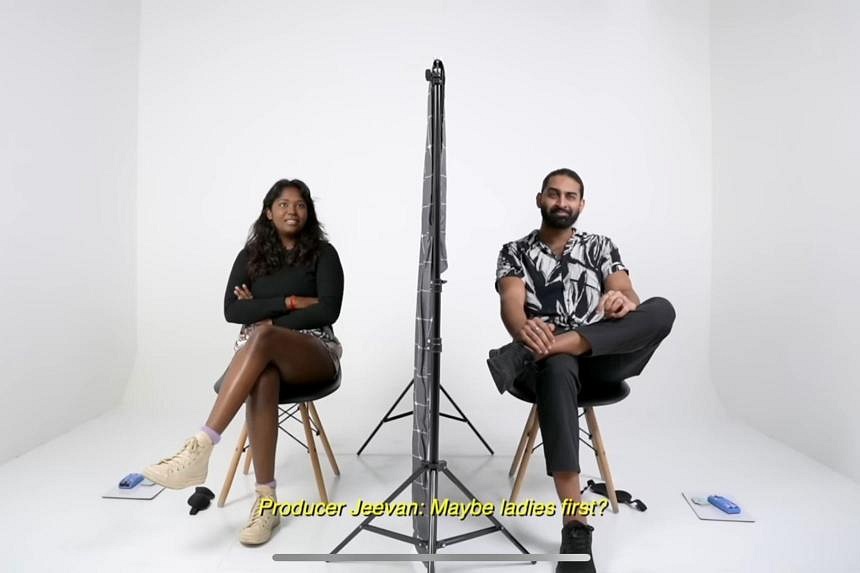SINGAPORE – After almost seven years of swiping on dating applications like Tinder, Bumble and Hinge, Mr K. J. Shakti could not find a partner through these apps.
In February, he went on Desi Paktor, a blind-date show on YouTube founded by four Singaporean youth behind Tanglish Studios.
Mr Shakti, who appeared on the show for two on-screen dates and one virtual meet-up, said: “Dating apps are very time-consuming and tedious, from swiping on profiles to making small talk with people and eventually finding out that they are not a suitable match.”
The 26-year-old bartender had to indicate to producers what he was looking for in a partner, and leave it to them to find a suitable match.
The show is aimed at people of South Asian ancestry. Desi refers to a person of South Asian descent, and Paktor is a Hokkien colloquial term for dating.
There have been seven shows since it was launched in May. The producers of the show, aged between 23 and 27, said they founded the series after noticing their peers struggling to find partners online.
On the show, individuals are matched before they go on the show for a blind date. A divider separates the pair, and they are limited to talking to each other.
After the first date, they can indicate their interest in going for a second date where they cook a meal together on the show.
Co-founder of Desi Paktor Ian Jeevan said: “Cooking is not a conventional second date, but we chose it to encourage the participants to interact with one another in a more hands-on way, to get to know each other better.”
The 27-year-old, who is also a financial consultant, said that the producers hope to encourage a connection beyond physical attraction.
“On dating apps, the decision to start a conversation is often made purely on physical attraction. A lot of potential connections are lost this way,” said 23-year-old Shaam Elangesaran, co-founder of the series.
Although Mr Shakti has not found a partner on the show, he is hopeful.

He keeps late hours because of his work, which makes dating challenging.
“My workplace is also not the right environment to meet a partner. I want to remain professional with my co-workers. As for customers, most come in to relax, so I don’t want to ruin their time,” he added.
A survey commissioned by the National Population and Talent Division found that singles were not proactively dating because they had a limited social circle; did not have opportunities to meet potential partners; and preferred to leave dating to chance.
The Marriage and Parenthood Survey 2021 involved more than 5,800 Singapore residents aged between 21 and 45, of which 2,848 respondents were never married and 3,017 were married.
The study found that half of single respondents were not currently dating, and 38 had never dated before. But they, like Mr Shakti, are looking for love.
More than half (58 per cent) of Singaporean singles were open to meeting their partner through online means – a 15 per cent increase compared with survey results from 2016.
In 2004, Ms Violet Lim, who was then 24, left her job as a management associate at a bank and founded Lunch Actually with her then-boyfriend and now-husband Jamie Lee. They started dating while they were university students.
Lunch Actually provides a matchmaking service by arranging lunchtime dates for people who are too busy to actively look for a partner, but want one.
Ms Lim said: “I was so curious about why my friends and colleagues of the same age group were either getting married and starting a family or had no success on their dating endeavours.”
She had come across the concept of lunchtime dating while she was overseas. Beginning with 100 clients in Singapore, Lunch Actually has since organised over 150,000 first dates. It now has branches in Malaysia, Hong Kong, Indonesia, Thailand and Taiwan.

Ms Lim shared that the company has matched over 4,000 of its members across all its branches since it started. It has about 2,000 members in Singapore.
While they started with mostly professionals in their 20s, she said that people from all walks of life are now becoming members.
Lunch Actually has a database of clients who list traits they are looking for in a partner. The company then matches the members and sets up lunchtime dates. The clients then decide if they would like to proceed on a second date.

Why lunchtime dates? Ms Lim said a survey of 500 singles aged between 18 and 65 in Singapore by Lunch Actually found that 56 per cent of the respondents indicated that they had been contacted in a way that made them feel uncomfortable on dating apps.
The same survey showed that 38 per cent also said they had been lured by individuals pretending to be someone else.
Mr John Shepherd Lim, chief wellbeing officer of Singapore Counselling Centre, said there has been a 15 per cent increase in youth seeking counselling for stress and anxiety issues that stemmed from dating app usage, from the first half of 2022 to the first half of 2023.
“Some youth have expressed that being ghosted or not getting matches made them feel like they are unlikeable and isolated,” he said.
Ghosting occurs when one party stops all forms of communication with the other without any explanation.
Mr Lim added: “Youth are in the process of forming their self-identity, and negative experiences with online dating, such as being rejected, can impact their sense of self-worth.”
Ms Gargi Sharma, a 21-year-old digital marketer who went on Desi Paktor, said: “When I was first ghosted on a dating app at 18, I was heartbroken. I needed validation then.”
It originally affected her self-esteem and crushed her confidence. “I even started assuming that all men would do this to me and stayed away from the dating scene for a whole year,” she said.
Some, so used to messaging on apps, feel awkward on a date because they just cannot communicate in person.
Ms Gargi said: “I have never felt so connected to people with all these means of communication, yet so disconnected at the same time, because we don’t know how to talk to one another.
“If dating apps weren’t a thing, more people would know how to communicate with each other on dates,” she added.
Helping with small talk
Ms Anantha Rishita, co-founder of Desi Paktor, said reliance on virtual communication “leaves people unable to approach others in public, reducing the chances of finding a partner at places such as work or school”.
Added Ms Atiqa Dar, another co-founder of Desi Paktor: “Some do not know how to start a conversation or even how to carry themselves when approaching someone they are interested in.”
To help individuals who face similar problems, Lunch Actually provides coaching sessions on what to say during dates and tips on how to handle friction experienced in a relationship.
CompleteMe, another matchmaking organisation, conducts facilitated dating sessions where they can step in on a date if any party is feeling uncomfortable or if awkwardness arises.
It was founded by Ms Michelle Goh, who was 27 when she created a group on Facebook called Singapore Facebook Singles.
“I wanted to enlarge my social circle and I was single and available then,” said the 43-year-old.
Members of the group and Ms Goh were inspired to organise dating events for individuals to meet one another.
Starting with 50 people in 2007, CompleteMe now has 5,100 attendees for its events.
Participants of Desi Paktor are provided with prompts to aid in conversations.
Questions revolve around themes of sharing personal experiences, what they look for in a partner and even how they view sexual intimacy, in an attempt to encourage them to build a connection.
Lunch Actually runs thorough background checks on their clients to ensure they are who they claim to be. Traits in a partner that they would not compromise on are discussed, and only those that fit the preferences of their clients are matched.
Some youth face pressure to get married when friends in their age group do so.
“I see my friends settle down and start a family, this evokes a sense of longing in me but I believe that I will find a partner when the right time comes,” said Mr Jeevan.
This article has been edited for accuracy.

